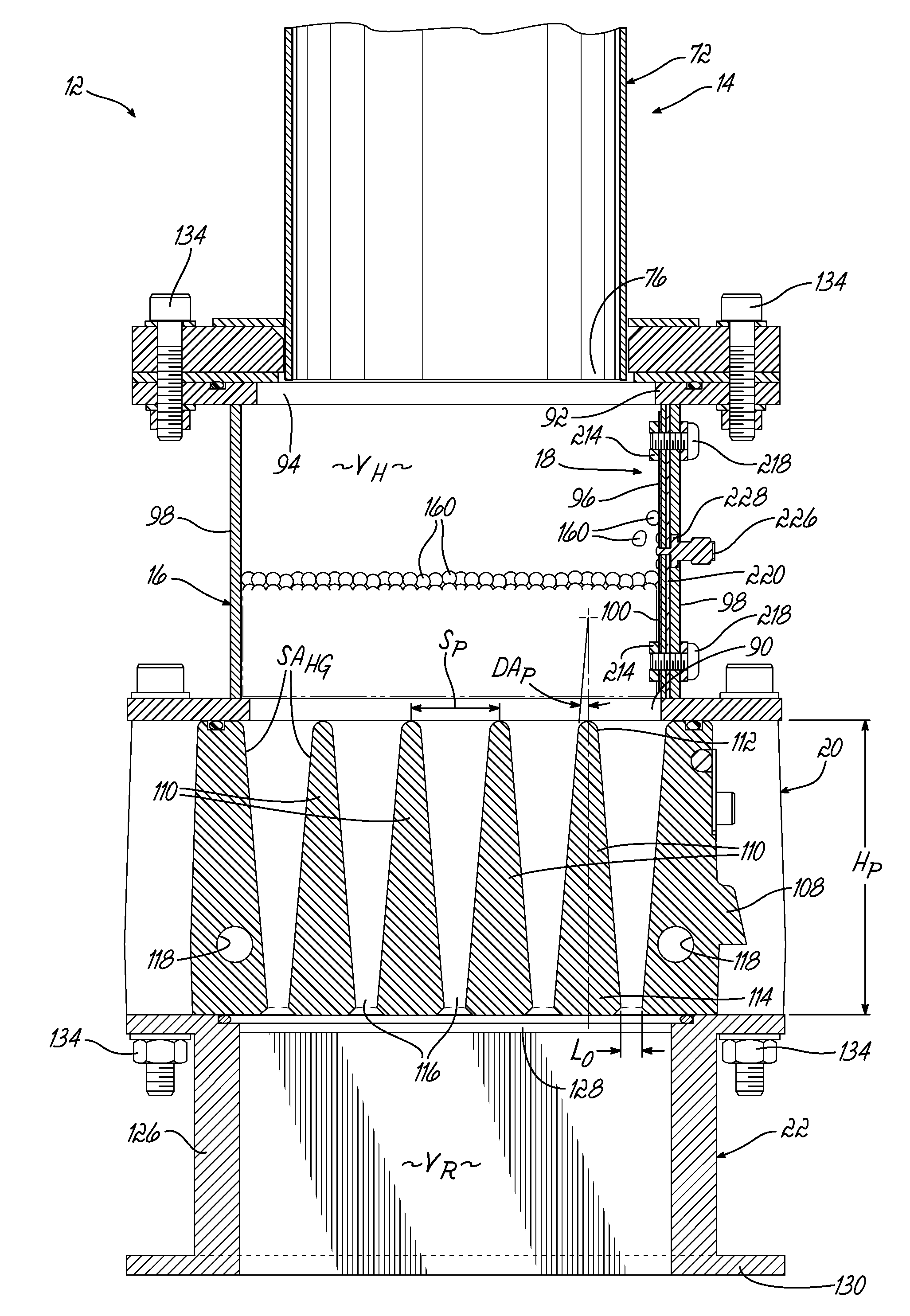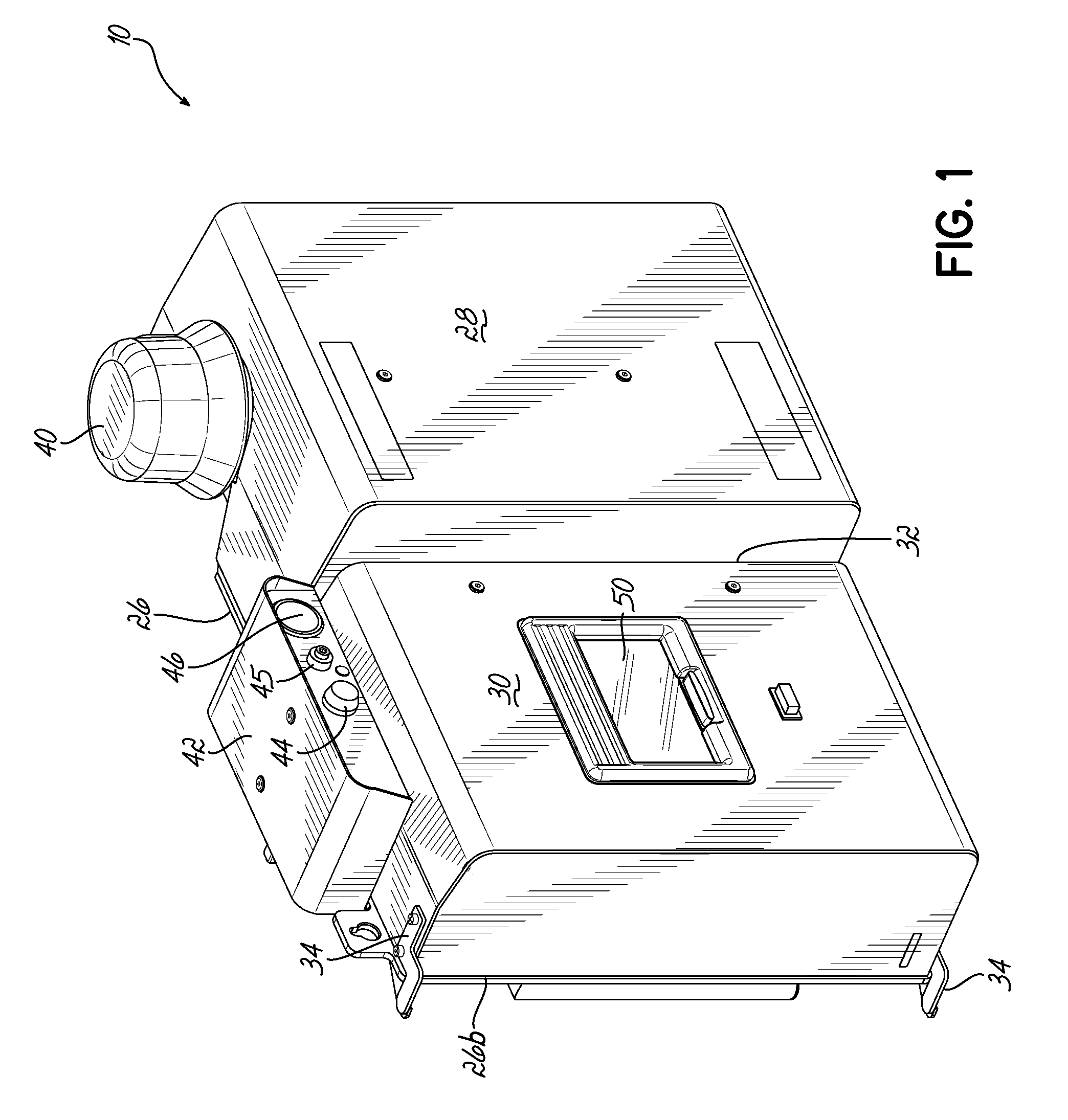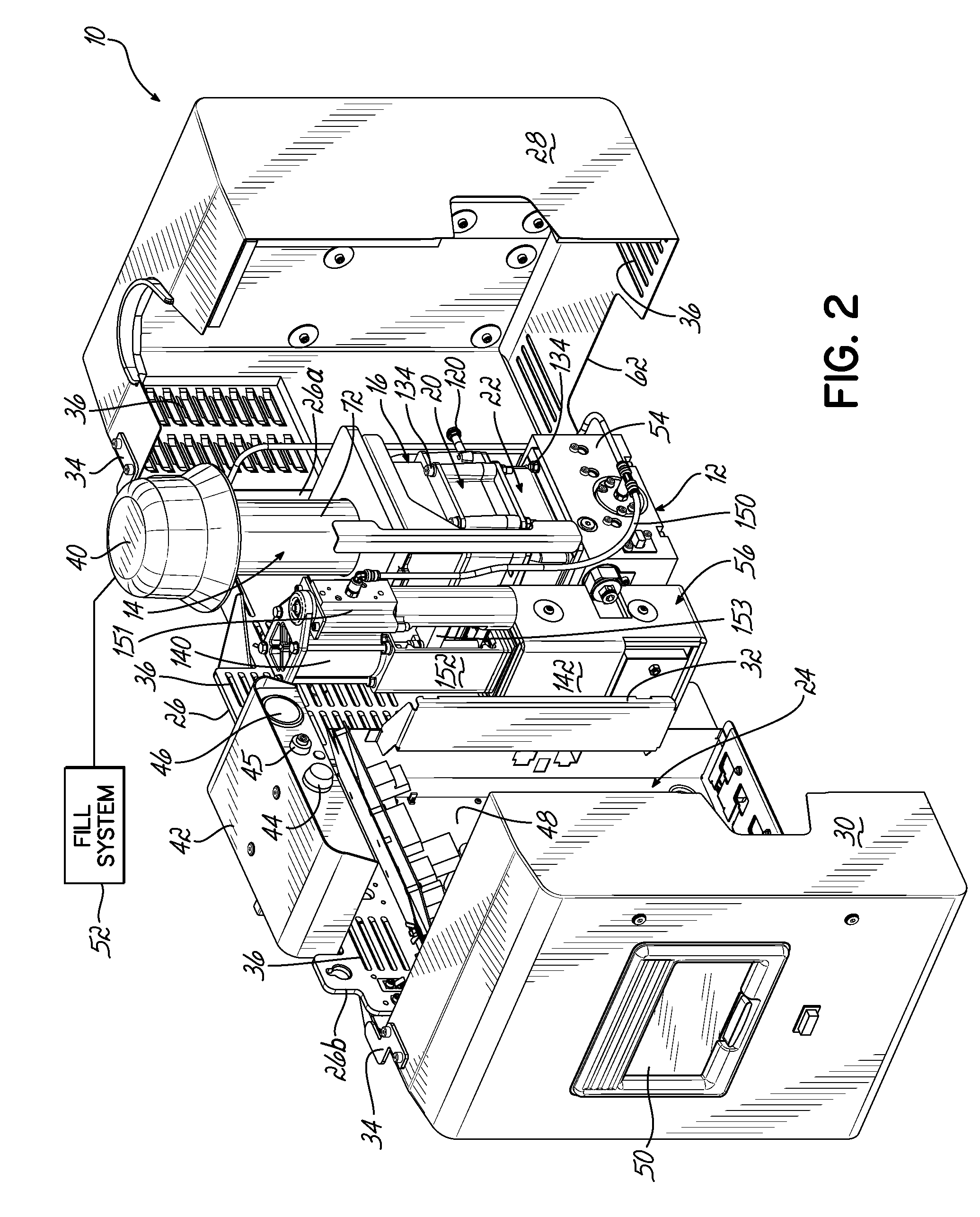Adhesive dispensing device having optimized reservoir and capacitive level sensor
a technology of capacitive level sensor and reservoir, which is applied in the direction of liquid transfer device, liquid/fluent solid measurement, instruments, etc., can solve the problems of large amount of hot-melt adhesive held, low demand for molten adhesive, and most conventional adhesive dispensing device that does not operate continuously, etc., to reduce the velocity of air flow, reduce the retention volume of adhesive, and accelerate the delivery of additional adhesive
- Summary
- Abstract
- Description
- Claims
- Application Information
AI Technical Summary
Benefits of technology
Problems solved by technology
Method used
Image
Examples
Embodiment Construction
[0040]Referring to FIGS. 1 through 3, an adhesive dispensing device 10 in accordance with one embodiment of the invention is optimized to retain a significantly smaller amount of adhesive material at an elevated application temperature than conventional designs while providing the same maximum flow rate when necessary. More specifically, the adhesive dispensing device 10 includes a melt subassembly 12 that may include a cyclonic separator unit 14, a receiving space 16 with a level sensor 18, a heater unit 20, and a reservoir 22. Each of these elements is described in further detail below. The combination of these elements enables a maximum flow with approximately 80% less retained volume of molten adhesive material held at the elevated application temperature when compared to conventional designs.
[0041]The adhesive dispensing device 10 shown in FIGS. 1 through 3 is mounted along a wall surface, as described in U.S. patent application Ser. No. 13 / 659,291 to Jeter (entitled “Mountable...
PUM
 Login to View More
Login to View More Abstract
Description
Claims
Application Information
 Login to View More
Login to View More - R&D
- Intellectual Property
- Life Sciences
- Materials
- Tech Scout
- Unparalleled Data Quality
- Higher Quality Content
- 60% Fewer Hallucinations
Browse by: Latest US Patents, China's latest patents, Technical Efficacy Thesaurus, Application Domain, Technology Topic, Popular Technical Reports.
© 2025 PatSnap. All rights reserved.Legal|Privacy policy|Modern Slavery Act Transparency Statement|Sitemap|About US| Contact US: help@patsnap.com



